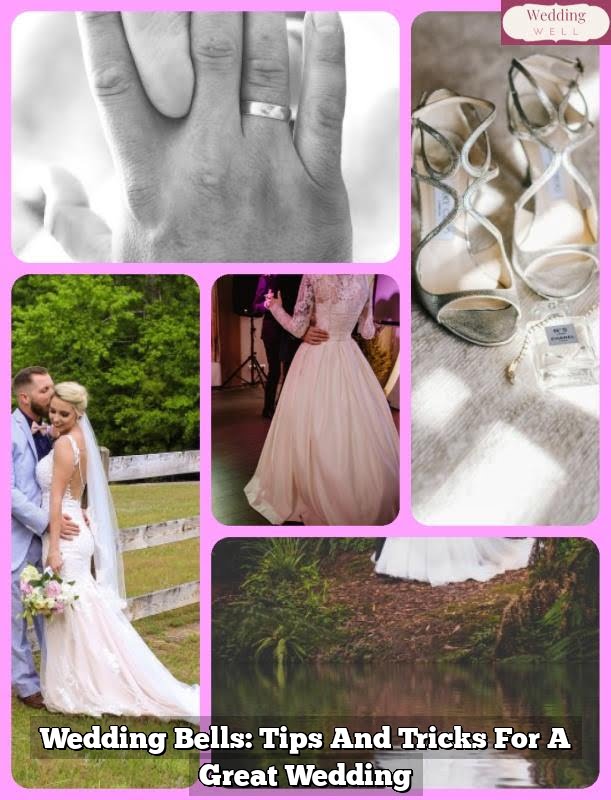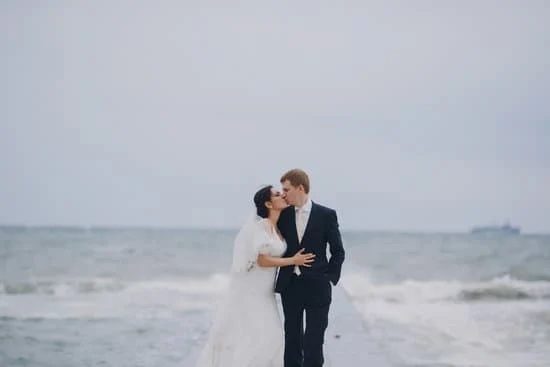What happens if you object at a wedding? Wedding ceremonies are deeply meaningful and symbolic, representing the union of two individuals and their commitment to each other. One of the most well-known traditions is the moment when the officiant asks if anyone objects to the marriage, typically with the phrase “speak now or forever hold your peace.” This article will explore the significance of this tradition and what actually happens if someone does speak up.
Weddings have been an integral part of various cultures for centuries, and the phrase “speak now or forever hold your peace” holds a significant place in them. It represents a pivotal moment in the ceremony where objections can be voiced openly, although it is rarely exercised in modern times. Nevertheless, understanding the historical context and evolution of this tradition provides insight into its relevance today.
In addition to its cultural and sentimental importance, objecting at a wedding also raises legal implications that need to be examined. There is ongoing debate on whether objecting can stop a wedding from happening and what potential consequences may arise from doing so. Furthermore, there are social and emotional considerations to take into account when understanding why someone may choose to object at a wedding.
The History of Objecting at Weddings
The tradition of objecting at weddings dates back to medieval times when marriage was viewed more as a business agreement between families rather than a union based on love. During those times, it was not uncommon for objections to be raised during the wedding ceremony due to various reasons such as pre-existing engagements, familial disputes, or financial concerns.
The phrase “speak now or forever hold your peace” served as an opportunity for anyone with a legitimate reason to object to the union.
Over time, the significance of objecting at weddings has evolved as societal norms and views on marriage have changed. In modern times, the tradition is often seen as outdated and rarely practiced in most cultures. However, it remains a part of the ceremonial script for many weddings, typically included for traditional or symbolic purposes rather than as a genuine invitation for objections.
In some cases, couples may even choose to omit the phrase “speak now or forever hold your peace” from their ceremony altogether to avoid any potential disruptions. Despite its historical roots, objecting at weddings is now largely viewed as a relic of the past and is not expected to have any real impact on the outcome of a marriage.
Legal Implications
Marriage Laws and Pre-Wedding Requirements
In many countries, including the United States, there are specific legal requirements that must be met before a couple can be legally married. These requirements typically include obtaining a marriage license from a government authority and following certain procedures outlined by local laws.
The “speak now or forever hold your peace” part of the ceremony is not actually a legal requirement, but rather a traditional element of the wedding ritual. In fact, some modern couples choose to omit this phrase from their ceremonies altogether.
The Impact of Objecting on the Wedding
If someone were to object during a wedding ceremony, it does not necessarily have any direct legal consequence that would stop the wedding from happening. In some cases, an objection might lead to a pause in the proceedings, giving the couple an opportunity to address any concerns that have been raised. However, ultimately it is up to the couple and officiant to decide how they wish to proceed.
Potential Legal Ramifications
While objecting at a wedding may not result in legal consequences for the person who raised the objection, it is essential for individuals to understand that frivolous or insincere objections made with malicious intent can have social and personal repercussions. Additionally, if someone has evidence of legal ineligibility for marriage (e.g.
one party is already married), they should take appropriate legal action rather than relying on making an objection during the ceremony. Marriage laws tend to protect against false accusations intended to halt nuptials unlawfully.
Overall, while objecting at a wedding may not directly have legal consequences or stop a wedding from happening, it can lead to emotional distress for all involved parties and impact relationships within families and communities.
Social and Cultural Perspectives
In different cultures, the act of objecting at a wedding can carry varying degrees of significance and consequences. Here is an exploration of how this tradition is perceived across different societies and its potential impact on relationships:
- In Western cultures, such as in the United States and Europe, objecting at a wedding is often seen as a dramatic gesture and is not commonly practiced. The traditional phrase “speak now or forever hold your peace” has become more symbolic than serious in modern times. However, if someone were to object during a wedding ceremony, it could be seen as disruptive and disrespectful. It may also cast doubt on the strength of the couple’s relationship.
- In some Eastern cultures, particularly in certain parts of Asia, the act of objecting at a wedding may hold more weight. There are instances where family members or community elders have been known to voice objections based on cultural or traditional reasons. In these cases, objecting can lead to serious familial or societal repercussions and have a lasting impact on relationships within the community.
- Across many cultures, marriage is considered a sacred union not just between two individuals but between families and communities. Therefore, any objection at a wedding can have far-reaching consequences beyond just the couple getting married. It can strain relationships between families and create rifts within social circles that may persist long after the wedding ceremony has ended.
It’s important to consider how deeply ingrained cultural perspectives and traditions are when it comes to weddings and marriage ceremonies. While voicing concerns about a union may be valid, it’s crucial to navigate these sensitive matters with respect for the traditions and beliefs of those involved.
Emotional Impact
When it comes to weddings, emotions are running high for everyone involved. The bride and groom are usually at the center of all the attention, but their families and guests are also deeply invested in the occasion. It’s a day that is meant to be filled with love, joy, and celebration. However, if someone were to object during the ceremony, it could have a significant emotional impact on everyone present.
Impact on the Couple
For the couple getting married, an objection can be incredibly distressing and even traumatic. They have likely spent a great deal of time and effort planning their special day, and an unexpected disruption can turn what should be a happy occasion into a moment of confusion and embarrassment. This could lead to long-term emotional scars for the couple as they look back on their wedding day.
Impact on Families and Guests
The families of the bride and groom invest time, money, and emotions into what is supposed to be a joyful event. An objection can cause awkwardness among family members who may not know how to respond or take sides. Additionally, guests who witness an objection may feel uncomfortable or even unsafe if tensions rise in response to the disruption.
Aftermath
Even if the objection does not stop the wedding from proceeding, its impact will likely linger long after the ceremony has ended. The couple may face strained relationships with those who objected or with family members who took offense to the disruption. The emotional toll on everyone involved could negatively affect relationships among family members, friends, and even within communities.
So what happens if you object at a wedding? Emotionally speaking, it has far-reaching effects that can damage relationships for years to come.
Instances of Objections
When thinking about objecting at a wedding, many may think it’s just a tradition that doesn’t happen in real life. However, there have been instances where individuals have actually spoken up during the “speak now or forever hold your peace” moment. Here are some famous and notable real-life examples of objections at weddings and the aftermath:
- Elizabeth Taylor and Richard Burton: During their first wedding ceremony in 1964, a man named Peter Fisher stood up and objected to their marriage. However, the objection was quickly dismissed, and the wedding proceeded as planned.
- Kim Kardashian and Kris Humphries: During their highly-publicized wedding in 2011, a guest attempted to object to the marriage by standing up and speaking out. The objection caused a brief commotion, but the ceremony ultimately continued.
- Princess Diana and Prince Charles: In their high-profile royal wedding in 1981, an Australian man named David Flint objected to their marriage due to a legal technicality. However, his objection was not legally valid under British law, and the couple went on to tie the knot as planned.
These instances show that while objections at weddings may make for dramatic moments, they typically do not lead to the interruption or cancellation of the ceremony. Instead, they often result in heightened emotions and added stress for all involved.
It’s important to consider these examples when contemplating whether to object at a wedding. While it may seem like a romantic gesture in movies or television shows, real-life objections can have serious consequences for all parties involved. It’s essential to think through any concerns or objections carefully and approach them in a respectful manner outside of the wedding ceremony.
Alternatives to Objecting
If you have concerns or objections about a wedding but don’t want to disrupt the ceremony, there are alternative ways to address them. It’s important to approach the situation with sensitivity and respect for the couple and their special day. One option is to speak privately with the couple before the wedding day. This allows you to express your concerns directly while giving them time to consider your perspective without causing any disruption during the ceremony.
Another alternative is to discuss your concerns with a close friend or family member of the couple who may be able to offer advice or intervene on your behalf. This can be especially helpful if you feel uncomfortable addressing the couple directly but still want your concerns to be heard. Keep in mind that this should be done discreetly and with the best interests of all involved in mind.
Finally, if you feel that there are serious legal, ethical, or safety issues at stake, seeking guidance from a legal professional or counselor may be necessary. These professionals can provide objective advice on how to address your concerns in a way that protects everyone involved and ensures that they are handled appropriately.
| Wedding Concern | Alternative Approach |
|---|---|
| Personal objection | Speak privately with the couple or seek help from a trusted friend or family member |
| Legal, ethical, or safety issues | Seek guidance from a legal professional or counselor before taking action |
Conclusion
In conclusion, it’s essential to recognize the significance of wedding ceremonies and the traditional phrase “speak now or forever hold your peace.” While this phrase is deeply rooted in history and tradition, it has also sparked curiosity about what happens if you object at a wedding. As we have explored, objecting at a wedding holds both legal and emotional implications that can significantly impact the couple, their families, and the guests.
From a legal perspective, it is important to note that objecting at a wedding does not automatically stop the ceremony from taking place. However, it may result in legal consequences if false claims or accusations are made. Additionally, the emotional impact of objecting should not be underestimated. It can cause distress and damage relationships among the couple, their families, and friends attending the wedding.
While there may be valid concerns that arise before a wedding, disrupting the ceremony by objecting is not the most respectful or effective way to address them. Instead, communicating any issues or objections prior to the ceremony in a private and respectful manner can prevent unnecessary emotional turmoil for all involved. Ultimately, weddings are a celebration of love and commitment, and any concerns should be handled with sensitivity and care.
Frequently Asked Questions
What Happens if Someone Objects to a Wedding?
If someone objects to a wedding during the ceremony, it can create a tense and awkward situation. The officiant will likely pause the proceedings and address the objection in a respectful manner, ensuring that all legal protocols are followed.
Why Do They Say Speak Now or Forever Hold Your Peace?
The phrase “speak now or forever hold your peace” is used in wedding ceremonies to give anyone who may have an objection to the marriage an opportunity to speak up before it is too late. This tradition dates back centuries and is meant to ensure that there are no hidden issues preventing the marriage from happening.
Does Anyone Know of Any Lawful Impediment?
During a traditional wedding ceremony, the officiant often asks if anyone knows of any lawful impediment for why the couple should not be married. This question is a formal and legal way of ensuring that there are no obstacles or reasons why the marriage would not be valid in the eyes of the law.

Welcome to my blog about home and family. This blog is a place where I will share my thoughts, ideas, and experiences related to these important topics. I am a stay-at-home mom with two young children. I hope you enjoy reading it! and may find some helpful tips and ideas that will make your home and family life even better!





